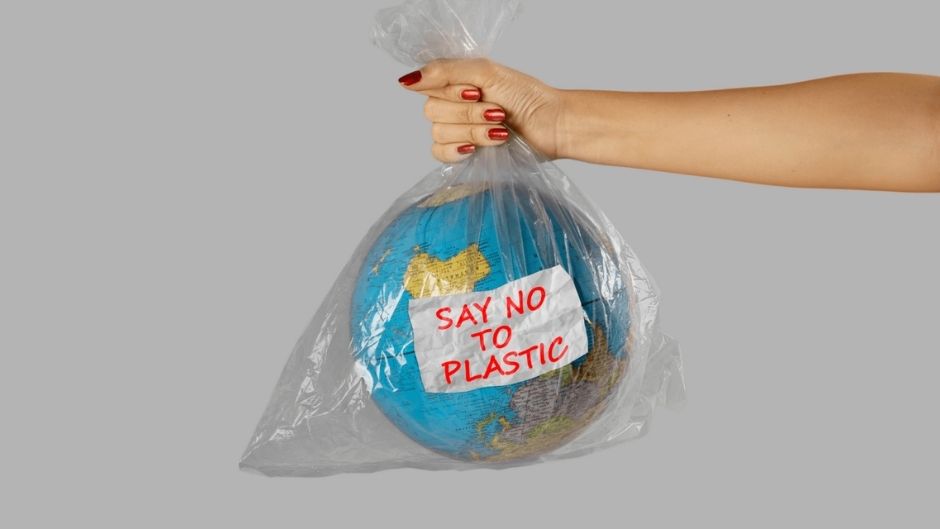Author Name: StartRight
Plastic has become so indispensable for our lives that it seems hard to get rid of it. Our planet is choking due to the hazardous impacts of the plastic curse. The situation is getting worse not only due to the massive production of plastic materials worldwide but also due to poor waste management.
In 2018, worldwide production of plastics touched 356 million tons. We could only manage to recycle 9% of total plastic production, and the rest goes to landfills, oceans, or incinerated. These figures get worse in low-income and developing countries of South Asia, Southeast Asia, and Sub-Saharan Africa. A 2017 report by Ocean Conservancy reported that just five countries; China, Indonesia, the Philippines, Vietnam, and Thailand account for half of the plastic waste in the oceans.
In recent years, we have seen the announcements by various countries establishing a complete ban on plastic imports. Donor agencies of the likes of the World Bank are making continuous efforts to improve the waste disposal method.
Here’s what you can do to play a role in avoiding plastic products completely for a better health and sustainable environment.
1. No More Bottled Water
According to Statista, the Americans purchased 14.4 billion gallons of bottled water in 2019. It is estimated that about 17 million barrels of oil are used only to meet the requirement of the U.S market.
Lower than 10% of these bottles go to recycling, and the rest is sent to landfills or thrown in rivers that eventually chokes our oceans. While the companies are reaping the profits, the sea life is suffocating on plastic waste.
Bottled water is safe. Is it? Think again!
Orb Media released its report on Microplastics Found in Global Bottled Water in 2018. The report revealed that a liter of bottled water, even from big brands, contains roughly 10.4 plastic particles.
2. Replace Reusables with Disposables
Look around you and count the disposable products that you use for one time and throw away. There are countless items from grocery bags to straws to coffee cups to plastic wraps and many more. Such products account for approximately 90 percent of our plastic usage.
Be a responsible citizen and substitute reusable products with disposables.
For example, you can purchase nice cutlery set to replace with disposable cutlery. Keep a ceramic coffee mug at your office table so that you don’t have to rely on plastic cups or lids. And, plastic wraps can be replaced with fabric covers.
Bring Your Own Bag (B.Y.O.B)
Single-use plastic grocery bags are one of the biggest sources of plastic pollution worldwide. The estimates are that four trillion plastic bags are used worldwide every year. These bags are responsible for the death of 100,000 marine animals every year.
You can replace the plastic grocery bags with reusable cotton, paper, or tote bag. You can carry these environment-friendly and cost-effective bags, every time you visit your nearest mart for groceries.
4. Cook Food at Home
It’s Saturday, and you have the brilliant idea of ordering food from your favorite restaurant. Wait, and try convincing your brain to cook at home. By cooking at home, you will be directly contributing to reducing the waste associated with your meals.
It will also help you to save those extra bucks that you spend on lavish dinners every month, take control of your health and diet, and spend more quality time with your family.
5. Beat the Microbeads
If you are aware of the hazardous impact of plastic on human bodies, then why do you support products with plastic microbeads? They are used extensively in personal care products, including toothpaste, facial scrubs, and other beauty products.
You can avoid using products with microbeads by opting for alternatives offering natural exfoliating characteristics like whole oats, jojoba beads, lemon, and salt.
6. Reduce Waste by Buying in Bulk
If the use of the plastic bag is unavoidable – try buying in bulk to reduce the overall waste production. Go for bigger containers rather than going for several smaller ones. It will not only reduce the use of plastic but also contributes to financial sustainability.
To have an idea about the cost of single-use plastic bags, it costs 4 billion dollars to the U.S retailers for giving away free bags.
7. Support Bag Tax
Many countries have introduced a bag tax to reduce plastic bags usage. It pushes retailers to charge an additional cost for the use of plastic bags and encourages the use of reusable bags.
8. Be the Change
You can bring the necessary changes to your lifestyle to curb the usage of plastic, and actively support and promote the ban of plastic. As a consumer, you can push manufacturers and corporations to come out with innovative ideas to restrict plastic usage.
Always think before buying a plastic product and opt for alternatives where possible. Don’t wait for the change to come on its own and be the change yourself for a better tomorrow.








































